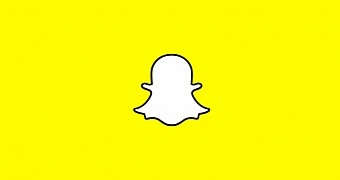Snap, the company behind popular messaging app Snapchat, will be paying $400 million a year to Google in a brand new deal that seeks to make sure the Google Cloud Platform provides the infrastructure and services needed to keep the Shapchat up and running.
“The agreement has an initial term of five years, and we are required to purchase at least $400.0 million of cloud services in each year of the agreement, though for each of the first four years, up to 15% of this amount may be moved to a subsequent year,” reveals Snap’s IPO filing.
This is quite the investment considering that Snap barely generated $400 million in revenue throughout 2016.
Although it may seem a bit surprising that Snap is working with Google rather than creating its own solution, it makes sense. The Google Cloud Platform is a service where engineers can pay for unlimited computing services. Given Google’s impeccable uptime, it’s only natural for a tool such as Snapchat to try to take advantage of that to make sure its users are guaranteed access to the app when they need it. Snapchat is, in fact, one of the largest users of Google’s cloud tools.
Google, etcetera
Snap isn’t limited to working with Google, however. According to the IPO filing, the terms of the agreement permit Snap to use other public cloud providers too. This is not uncommon for companies to do, as many others follow in the same paths, assigning various jobs to one cloud company and other jobs to another company.
It remains to be seen whether Snap will be able to honor the $400 million per year agreement, given the numbers it’s been bringing in so far. Presumably, the company hopes to attract more users now that it’s going public, as well as investors. Whether that’s do-able, we shall see.
The company has been blaming technical issues to its slowdown in getting new users. By the end of last year, Snapchat reached 161 million daily active users, a far cry from the 400 million Instagram has, for instance. Hopefully, with Google backing it up, things will go differently.

 14 DAY TRIAL //
14 DAY TRIAL //